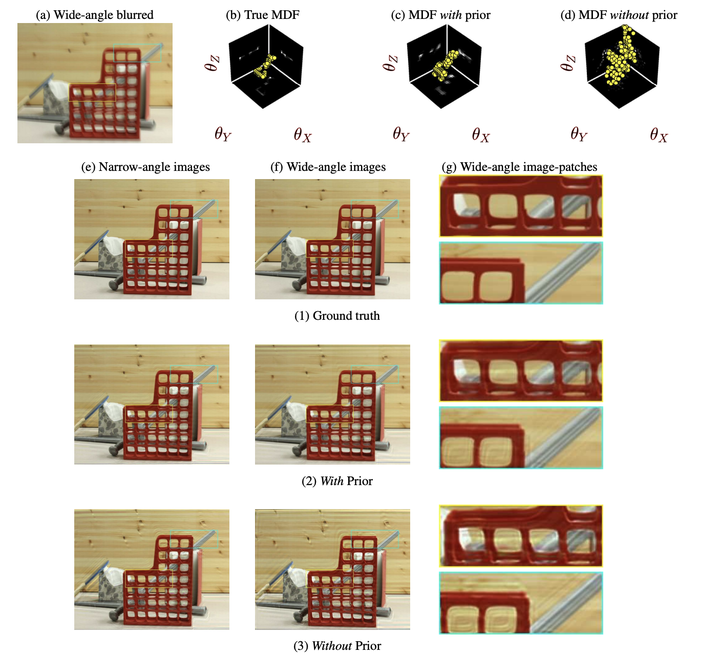
Abstract
Recently, there has been a renewed interest in leveraging multiple cameras, but under unconstrained settings. They have been quite successfully deployed in smartphones, which have become de facto choice for many photographic applications. However, akin to normal cameras, the functionality of multi-camera systems can be marred by motion blur which is a ubiquitous phenomenon in hand-held cameras. Despite the far-reaching potential of unconstrained camera arrays, there is not a single deblurring method for such systems. In this paper, we propose a generalized blur model that elegantly explains the intrinsically coupled image formation model for dual-lens set-up, which are by far most predominant in smartphones. While image aesthetics is the main objective in normal camera deblurring, any method conceived for our problem is additionally tasked with ascertaining consistent scene-depth in the deblurred images. We reveal an intriguing challenge that stems from an inherent ambiguity unique to this problem which naturally disrupts this coherence. We address this issue by devising a judicious prior, and based on our model and prior propose a practical blind deblurring method for dual-lens cameras, that achieves state-of-the-art performance.